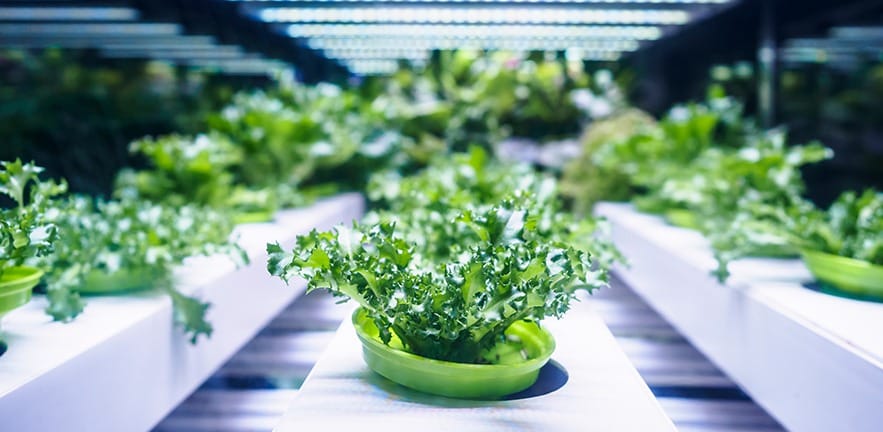‘Vertical farming’ can help address food security issues, says new article in Stanford Social Innovation Review authored by Cambridge Judge academics.

Vertical farming, which uses technology to produce food in vertically stacked layers, could help address food security issues in the years to come, says a new article in Stanford Social Innovation Review co-authored by Cambridge Judge Business School academics.
Food production needs to be increased by 70 per cent by 2050 to meet global food needs, says the United Nations Food and Agriculture Organisation.
Vertical “farms” in structures like warehouses and shipping containers use electronic sensors to ensure that crops receive the right amount of light, nutrients and heat, thus improving crop predictability while reducing water consumption.
Agriculture currently accounts for 70 per cent of global water consumption, says the article, entitled “Feeding the Future of Agriculture with Vertical Farming”. It is authored by Professor Mark Esposito, a fellow in the Circular Economy Centre at Cambridge Judge; Dr Terence Tse, a fellow at the Circular Economy Centre; Dr Khaled Soufani, Director of the Circular Economy Centre; and Lisa Xiong, who researched vertical farming during a doctoral residency at Cambridge Judge.
The article calls for efforts to educate consumers about vertical farming and to encourage investment in the practice and says:
Though vertical farms can never be expected to replace traditional farms, it is likely that they will have to complement each other if we are to meet the food demands of tomorrow.

